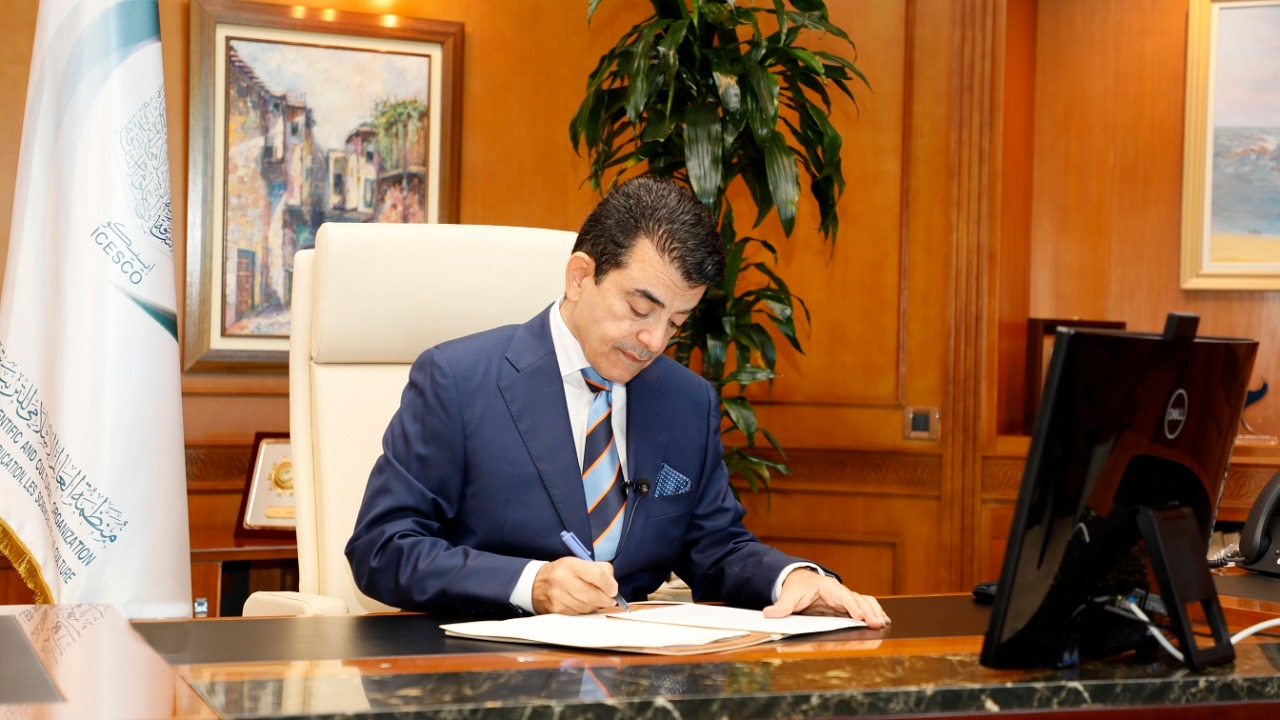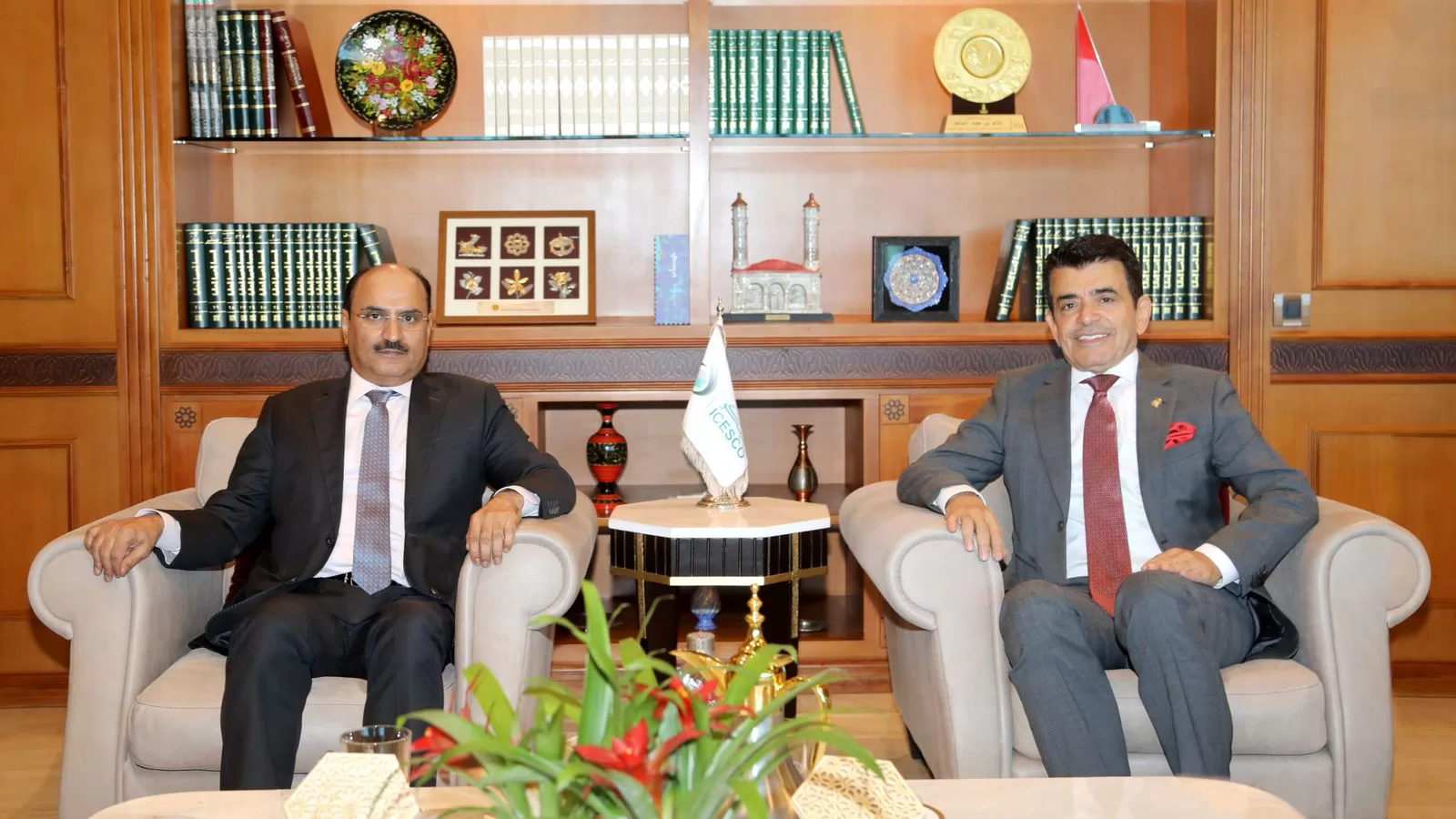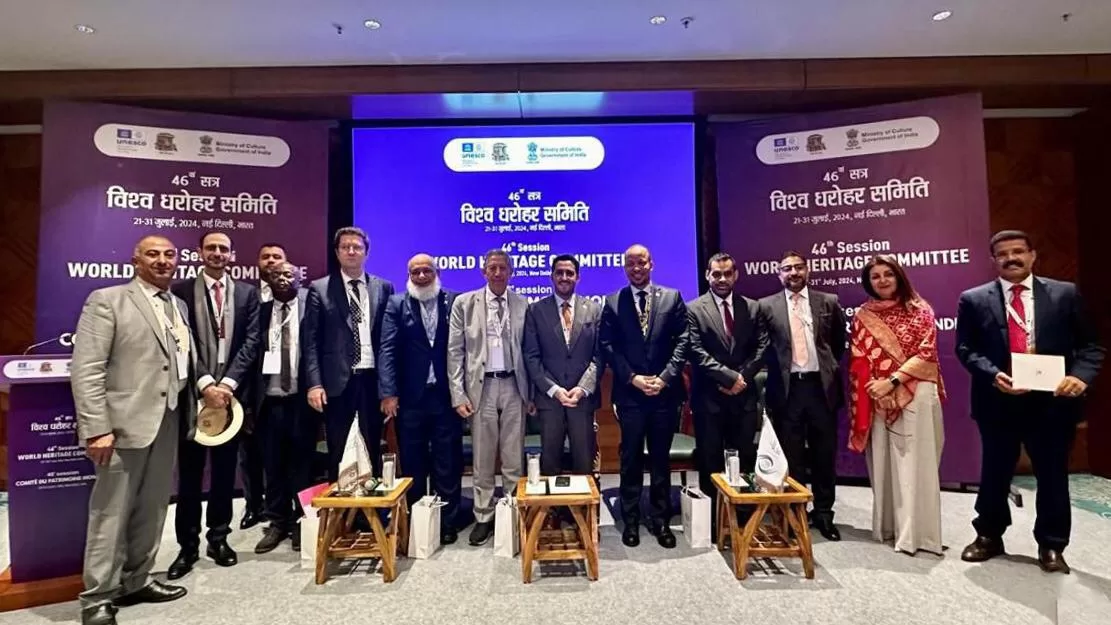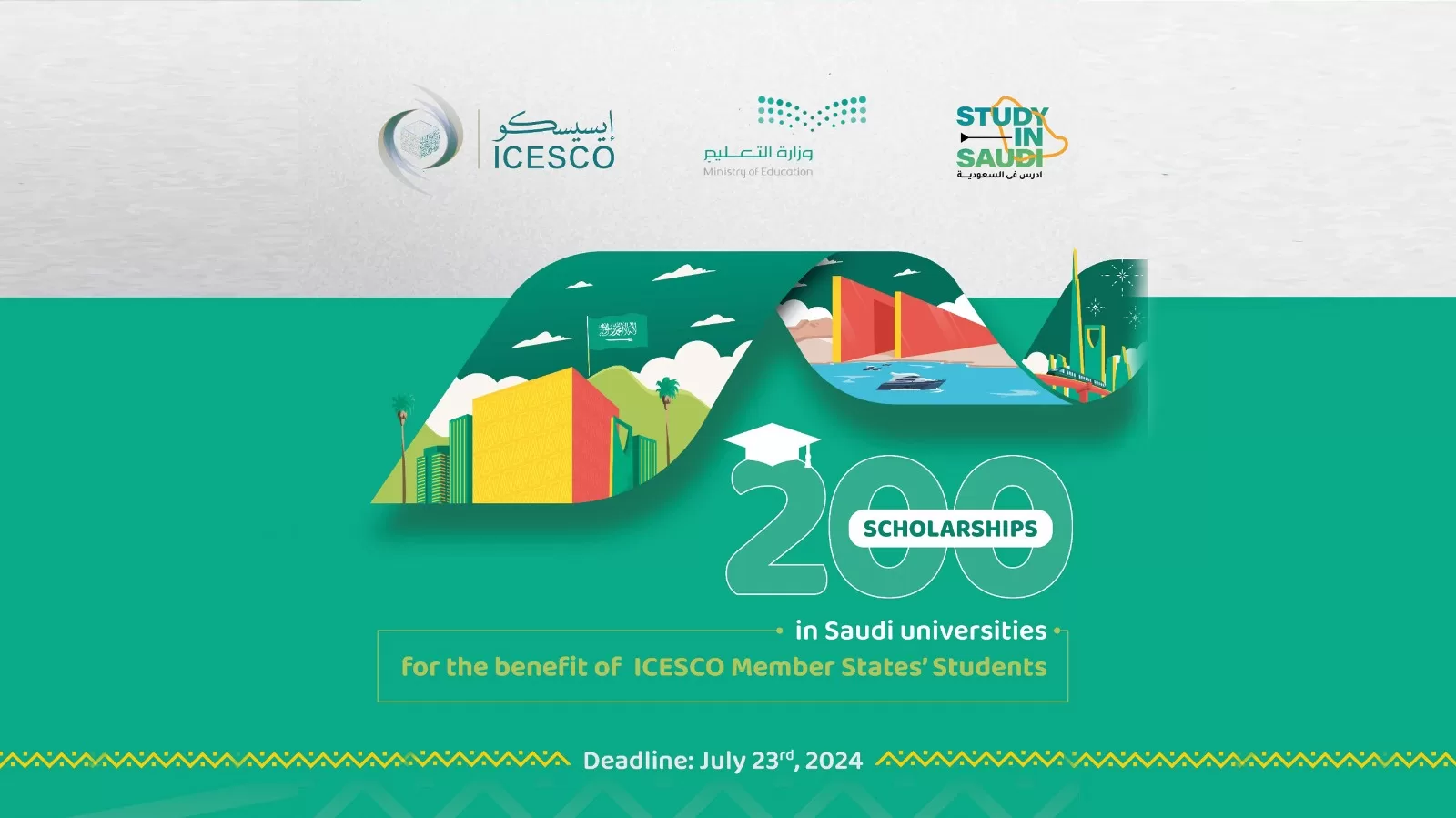
ICESCO and OECD Sign MoU to Develop Education in Countries of Islamic World

6 November 2020
The Islamic World Educational, Scientific, and Cultural Organization (ICESCO) and the Organization for Economic Co-operation and Development (OECD) signed yesterday a Memorandum of Understanding (MoU) to develop the education sector and improve education systems in the ICESCO Member States in the Islamic World. The MoU also aims to develop a vision for improving education and socioeconomic conditions using education as a tool to achieve sustainable development.
After the signing in a virtual ceremony, Dr. Salim M. AlMalik, Director-General (DG) of ICESCO, commended the great role the OECD played in improving the quality of education, implementing development policies to improve the lives of citizens, enhancing the socioeconomic status of communities, and contributing to world trade.
The DG called on the ICESCO Member States to join the OECD Programme for International Student Assessment and to improve education systems affected by the COVID-19 pandemic. He stressed that ICESCO, through its programs and initiatives, promotes cooperation between the Member States in the fields of education, science, culture, and tourism. He added that the signing of the memorandum aims to increase the quality and results of education in the said States and help them assess the levels of students and teachers, and identify the difficulties they face and deal with them.

Mr. Ulrik Vestergaard Knudsen, Deputy Secretary-General of the OECD, underlined the importance of education in achieving socio-economic development, noting that the memorandum will improve the exchange of knowledge at the international level and will solve common problems. He added that the OECD will support the ICESCO Member States to improve the methods of collecting and using national education data.
The memorandum aims to define the conditions for cooperation between the two parties to achieve common goals in the field of education. The goal is to develop systems as a means of achieving sustainable socio-economic development, improve the exchange of knowledge, and elaborate mechanisms and statistics for research and analysis to guide developing better policies.
The two parties agreed also to carry out the joint activities on the agenda of the Activities Plan for 2021-2022.




